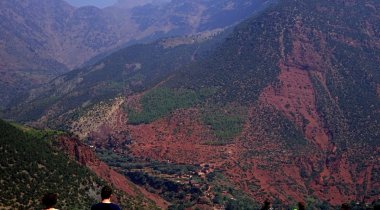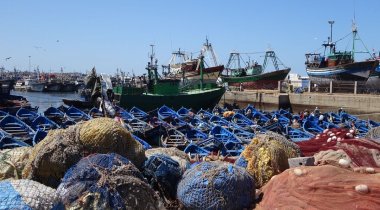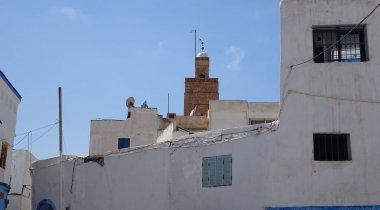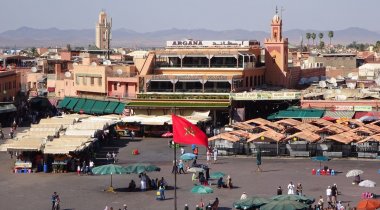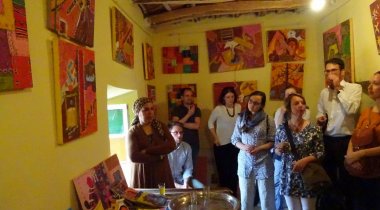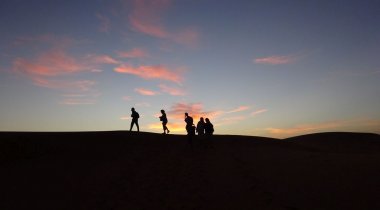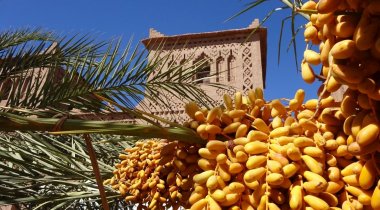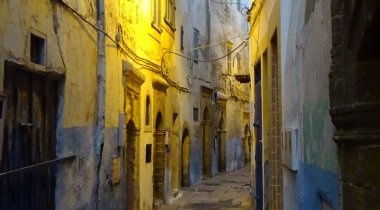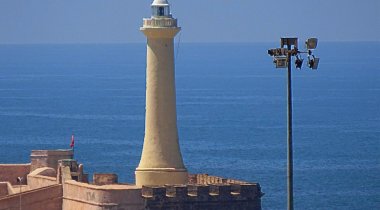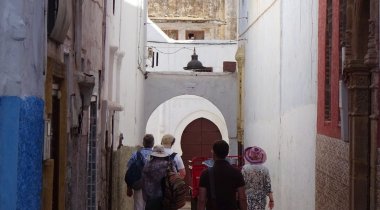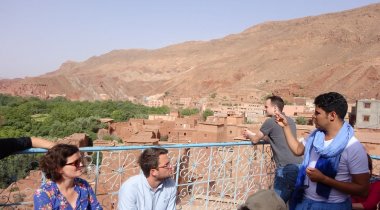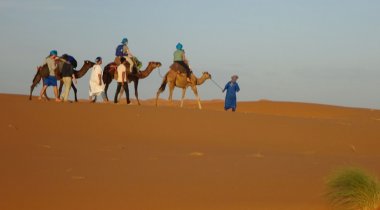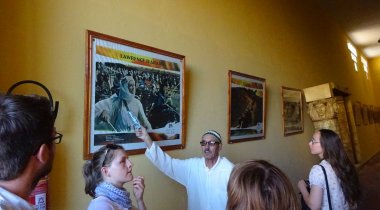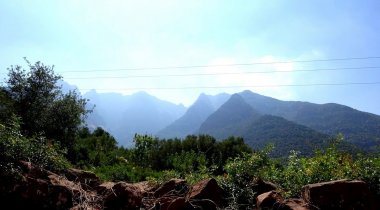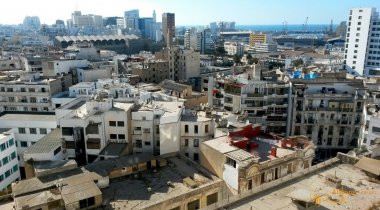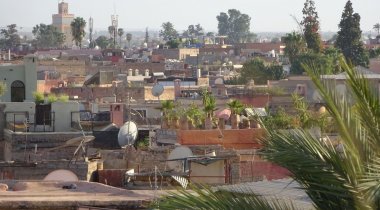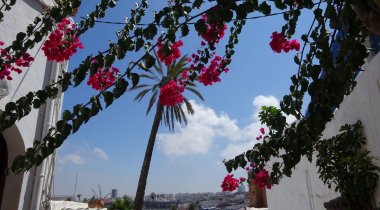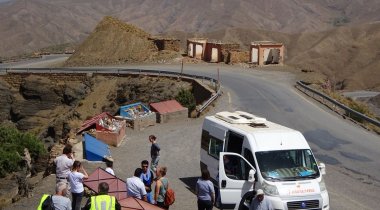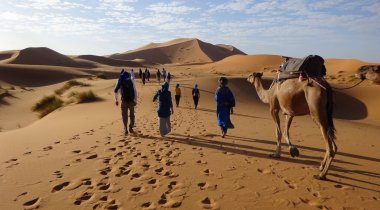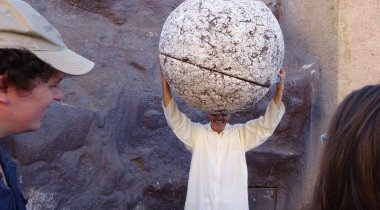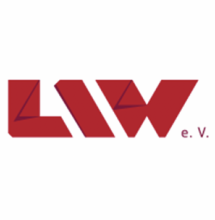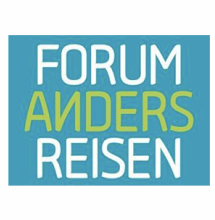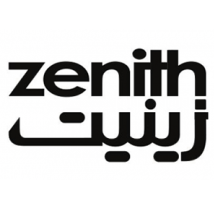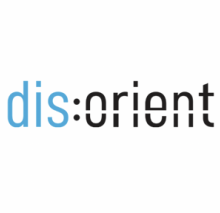With its lively souks, colorful casbahs, traditional handicrafts, and breathtaking nature spread between the Atlantic Ocean and Mediterranean Sea, the Atlas Mountains, and the Sahara desert, tourism agencies enjoy touting Morocco as the “land of contrasts.” In fact, the westernmost Arab country has a lot more than postcard images to offer in the way of extremes, largely because of its position between Europe and Africa.
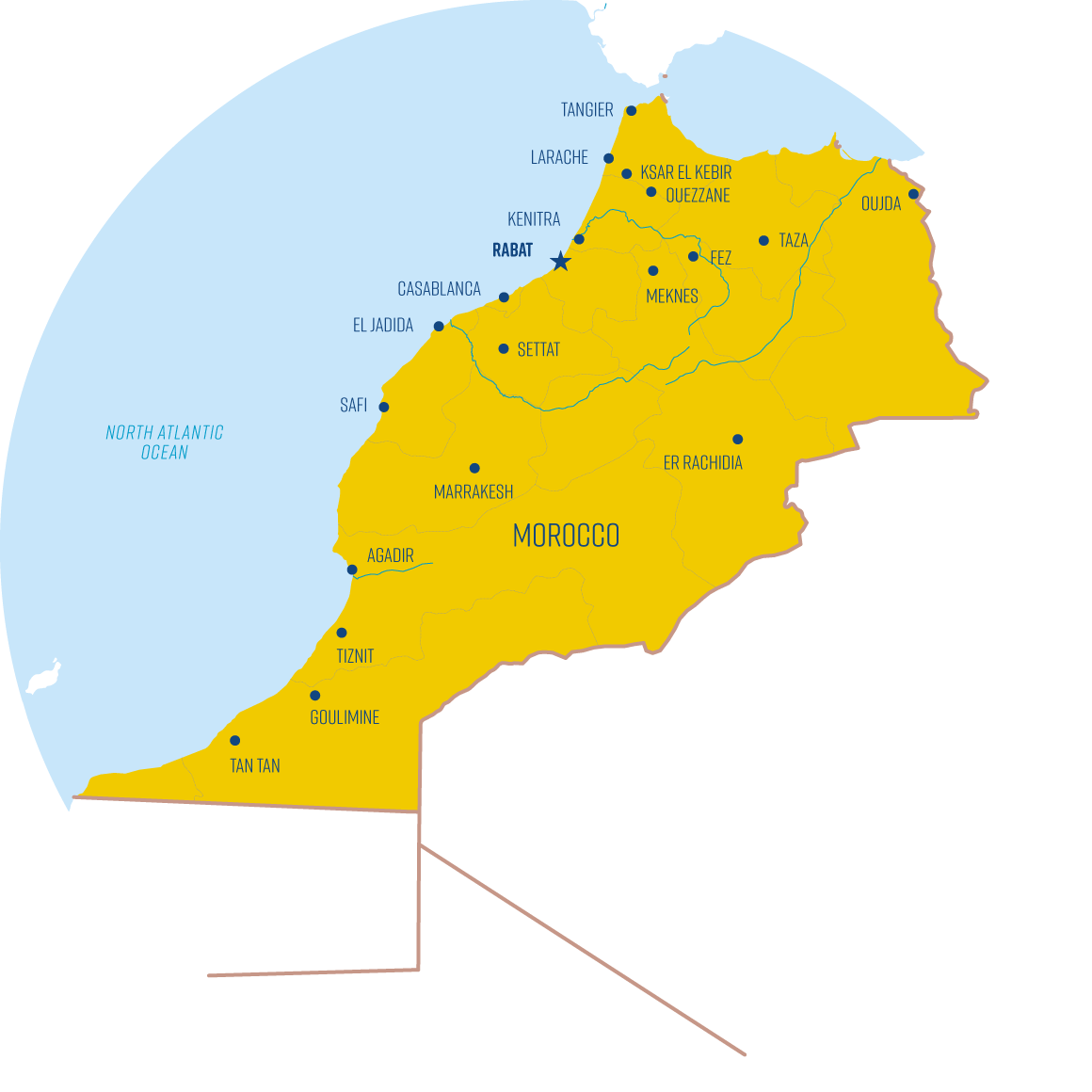
The Kingdom of Morocco gets high scores for education, health, and the economy. However, the differences between the city and the country are striking and rural flight has created an explosion of shanty towns outside its cities. High unemployment and hopeless futures particularly affect young people. Some seek better prospects in Europe, while others become easy prey for Islamist extremists, as shown by the attacks in Casablanca in 2003.
Since then, King Mohammed VI has concentrated on improving the economic and social situation in the slums in an effort to eradicate the breeding grounds for Islamist violence.
Morocco orients itself to the Arab East and the European West in equal measure. Located at the junction of ancient trade routes is a society shaped by Arab, Berber, French, Spanish and Sub-Saharan influences, and Muslim, Sufi, and Jewish traditions. These make an exciting combination of contradictions and tensions.
Unsere Highlights
Casablanca
The eventful history of Morocco’s largest city and financial center is reflected in its eclectic architecture. While Casablanca features hardly any classically “oriental” attractions, many places brilliantly illustrate urban Morocco’s political, social, and cultural upheavals. We visit the Hassan II Mosque, a city landmark and one of the world’s largest mosques, and tour its various neighborhoods, each with a unique history.
The Dadès Valley
We spend a few days in the impressive Dadès Gorges in the Atlas Mountains. Traveling through the constantly changing mountain landscape is an event in itself. We stay overnight in the gorge and visit local civil society initiatives. We also have plenty of time to take long hikes in our breathtaking surroundings.
Marrakesh
One of the world’s most famous squares, Jemaa el-Fna figures on UNESCO’s Intangible Cultural Heritage List because of its concentration of popular Moroccan cultural traditions. Every evening storytellers bring alive the Moroccan oral tradition, while jugglers and snake-oil salesmen make their mischief, and dancers and musicians perform. But Marrakesh also features old royal palaces, Islamic schools, and a fascinating, bustling medina that we’ll visit together.
Merzouga
We travel through barren land along the Moroccan-Algerian border, where the Sahara stretches as far as the eye can see. The first night we relax and acclimate ourselves, before rising before dawn the next day to climb the highest sand dune in the area. We spend that night under the awesome starlit sky in the middle of nowhere.
Ourika Valley
After the desert, we crave lush green plants and a break. We spend two days in the Ourika Valley near Marrakesh, where we get a good rest and hike to its stunning waterfalls.
Essaouira
The last stop on our trip is the small port city of Essaouira on the Atlantic, which has been a hip destination since the 1960s. Its medina, surrounded by massive ramparts built by the Portuguese, is a UNESCO World Heritage site. Here we explore the city’s Barbary pirate history and meet with a representative of its large Jewish community. Our trip ends here. Travelers in need of a vacation can relax longer at Essaouira’s picturesque beach.

